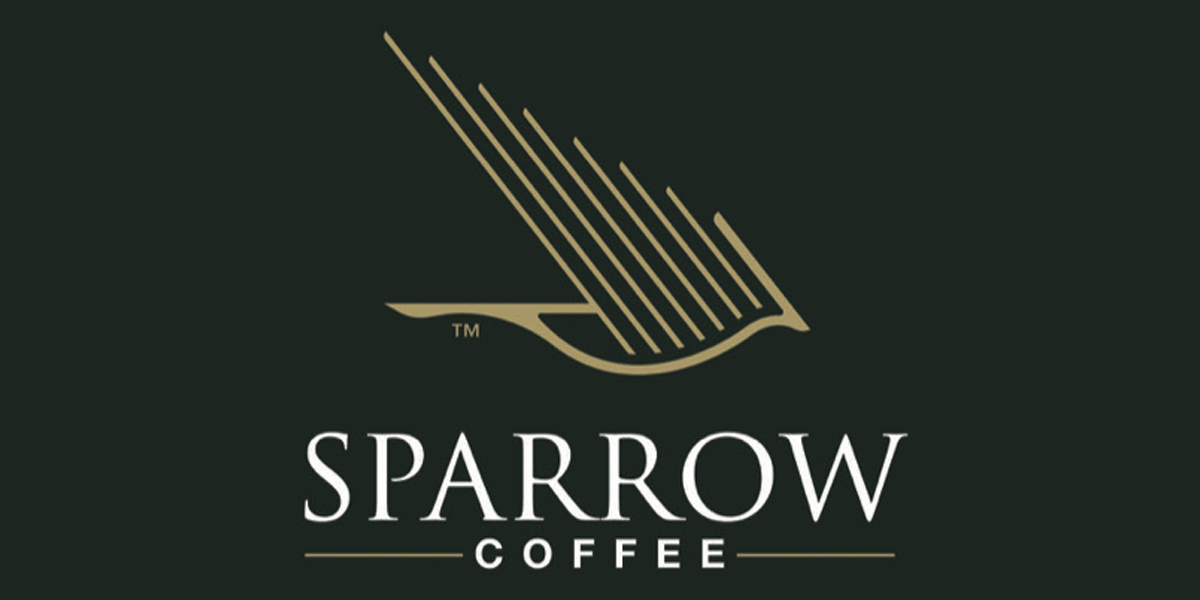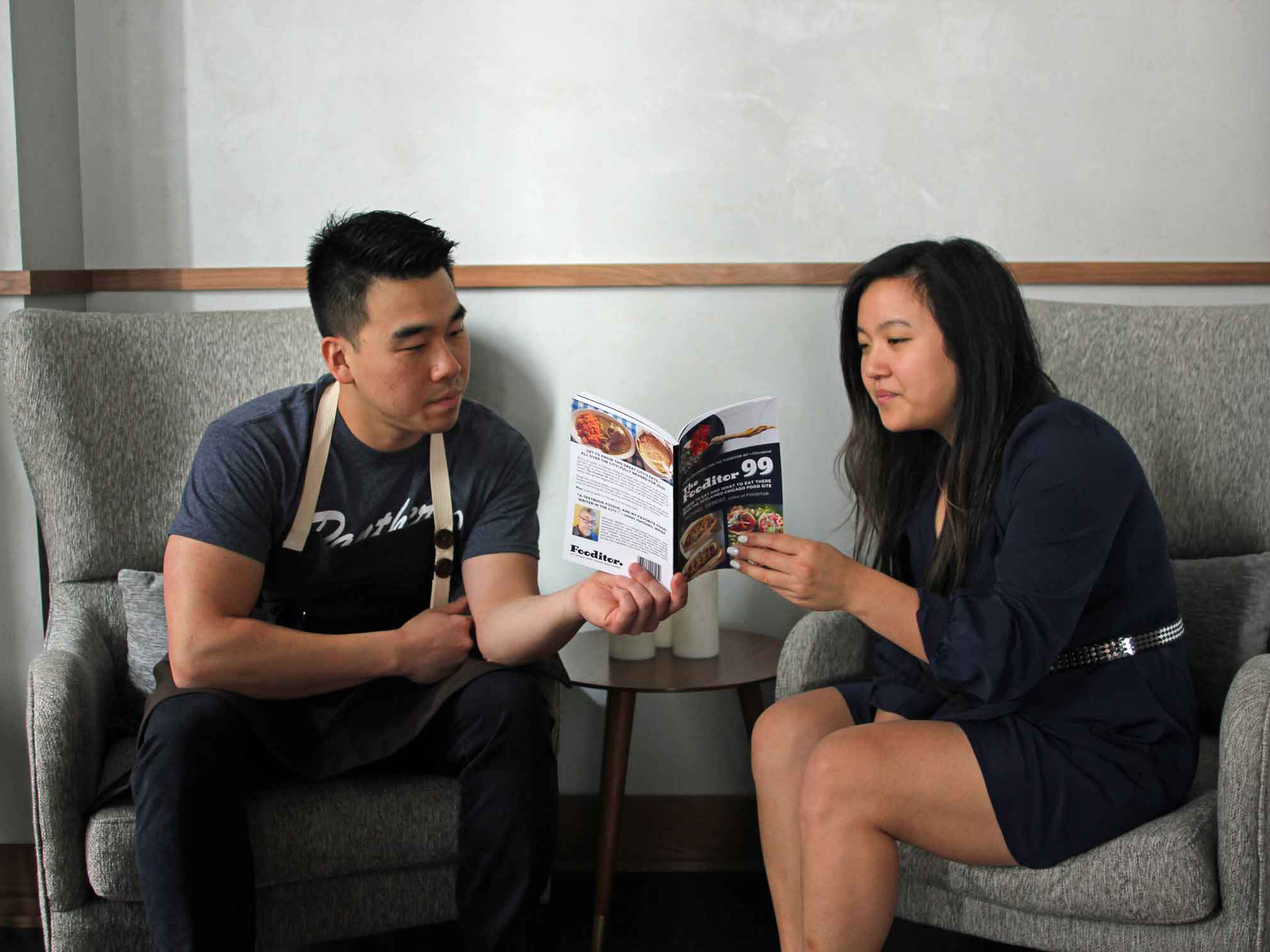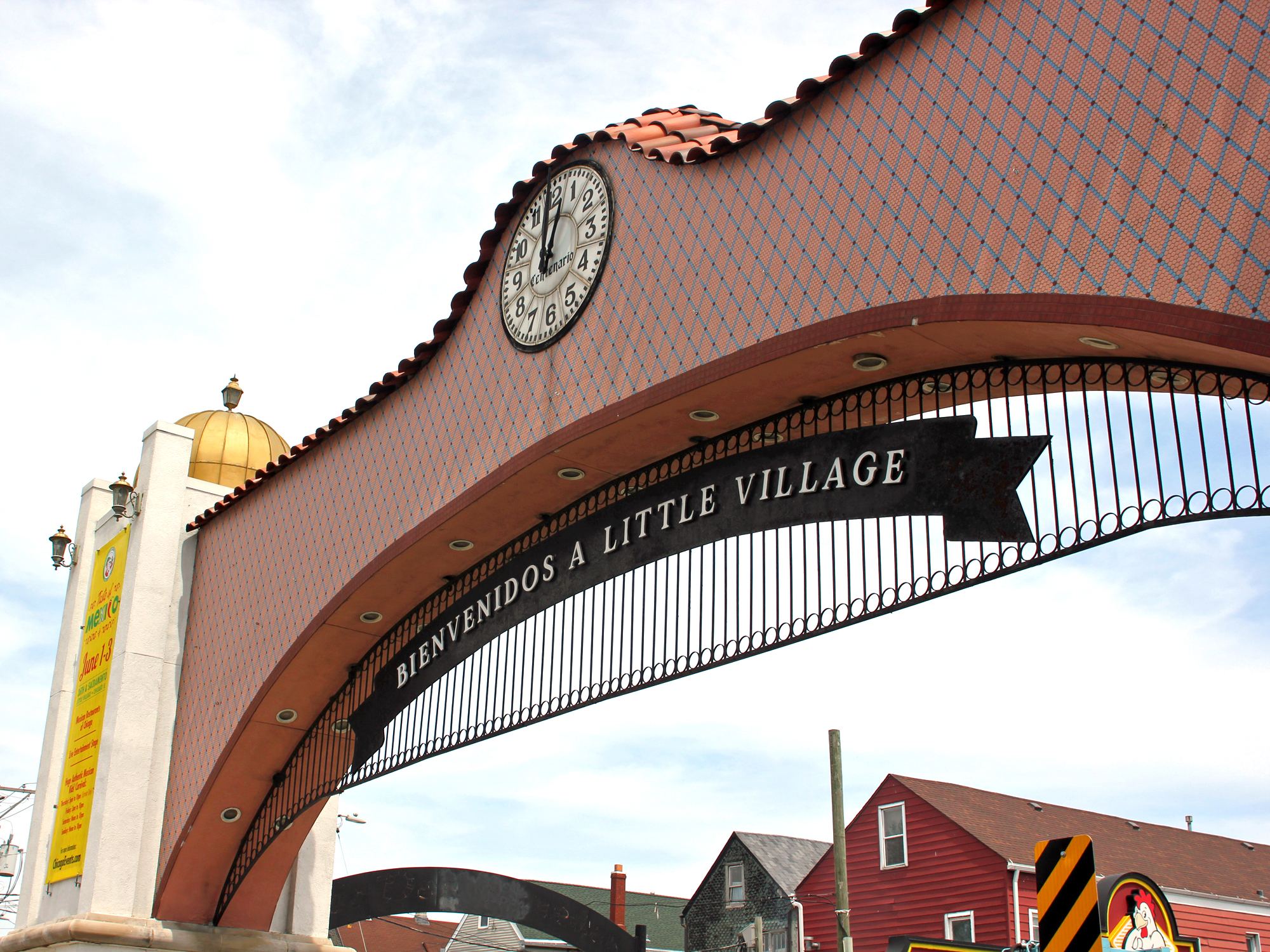I GET PITCHES ABOUT CERTAIN THINGS every holiday season. Pastry chefs make Buche de Noels, log-shaped chocolate cakes, and I’m sure like Log, it will be better than bad, it’s good! Italian restaurants have a Feast of the Seven Fishes (David Hammond wrote this one, about Spiaggia). And so on.
I’m all for doing such things, trendy restaurants tapping into deeper traditions, but they haven’t enticed me to put the time into writing them up. Until this one.
La Josie is a Mexican restaurant on the corner of Randolph and Halsted, across the street from Au Cheval, which is probably a pretty good place to be when people are told their wait will be two hours and you’re there offering margaritas, a lively atmosphere and immediate seating. It’s square plate Mexican, which is to say, the kind of place that serves octopus and cochinita pibil and isn’t afraid to bill a dish with the name “huitlacoche,” the earthy corn fungus sometimes called the Mexican truffle. (Optimistically, to my mind, but go Mexican food pride!) A very Chicago kind of Mexican restaurant, which serves a basic category (margaritas and comfy Mexican food) with more sophistication than it demands.
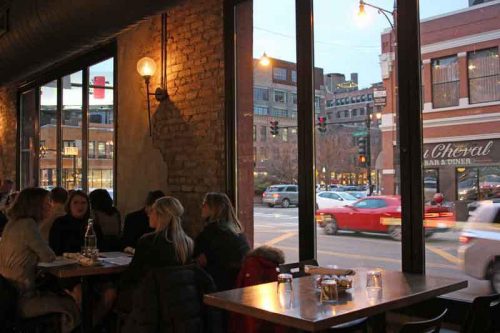
La Josie on Friday evening
Okay, but sophisticated Mexican isn’t exactly uncommon here—you only have to walk a few blocks to run smack into a whole Bayless complex. (Theoretically, anyway; being able to walk the West Loop is by no means certain.) The city is dotted with high quality Mexican restaurants, you say, you jaded elite diner you.
Yes, in some sense it may be. And behind every one of them, there’s an owner, and a family, and a host of traditions full of memories. And if you’re lucky, you might just get a glimpse of what all had to happen to bring us to a snazzy restaurant in the West Loop. At least, you will for the next couple of weeks as Pepe Barajas, the owner of La Josie, looks past the dishes that brought his restaurant to where it is today, and goes back to one of the recipes from which it all started.
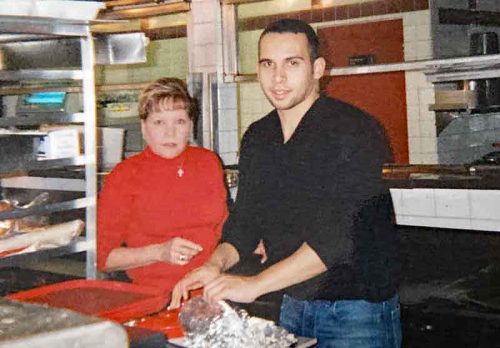
Mama Josie and Pepe Barajas in 2004
“SOME PEOPLE CALLED HER JOSIE, some people called her ‘Hosie,’ some people called her Josephine,” Barajas explains when I ask him how he says his restaurant’s name, which is his late aunt’s name. “There were a lot of ways people would say her name, but at the end of the day it all meant, with care and love. It’s kind of the same way with the restaurant—say it with care and love and make it your own.”
We’re on the rooftop, enclosed since it’s December, and festooned with holiday lights and colorful papel picado decorations, and he’s telling me the story of how he got to a downtown restaurant named for a humble, beloved Mexican aunt, Josefina Villegas.
“My mom’s a single parent, and we lived down the street from Mama Josie, who I grew up calling Mama because of this. Mom was Mom, and Mama Josie was Mama Josie,” he says. “Pretty much since I was born, she took care of me. My mom had a hair salon, and Josie was a stay-at-home mom, she had four kids of her own and me. My grandfather and uncle had taco stands in Mexico, and they would go out at night and sell tacos on the corners—they all had their area where they would go. Mama Josie would do the prep work at home. Cooking all the lenguas, making all the salsas, cutting up all the cilantro and cebollas, for each individual cart, and she was watching us at the same time.”
She pulled me aside and said, ‘Do not tell your mom you cut yourself with a knife. Tell her you were doing anything you want, but don’t tell her I let you grab a knife.’”
That was in Mexico City. Pepe was seven in 1988 when his mother brought him to Chicago. She came up to help an uncle who had started Taqueria Los Comales, which would grow into a small chain on the south side, at its original location on 26th street. “I started coming to the restaurant when I was nine years old. Started technically working—doing the dishes—at about eleven,” he says. “That’s about the time that Mama Josie opened her place on 63rd—” another Los Comales, at 63rd and Albany—”and I started helping her out. Just keeping me busy, more than anything, keeping me off the streets.”
“In a lot of ways we have a similar drive and passion in our cooking,” he says. “I think I learned that from her early on. I worked really well with her, maybe even better than with my own mother. We had more things in common, and she allowed me to be a little more free, where my mom was more cautious with me. Mama Josie was just like, ‘Let him! Let him do his thing.’ The first time I got a cut using a knife, I’ll never forget it, it was on my left thumb. And Mama Josie pulled me aside and said, ‘Do not tell your mom you cut yourself with a knife. Tell her you were doing anything you want, but don’t tell her I let you grab a knife.'”
The affection he has for her, his second mom, is obvious and sincere. “Where I get my culinary drive from is just seeing her, since I was a kid—just the passion and the ability that she just had, to pull people together with her food.”
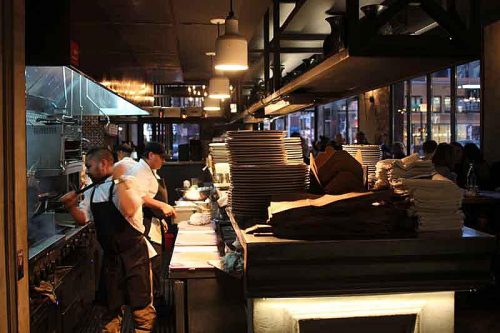
No time more than at Christmas, of course. “One of the major events that we would do was Christmas—come to Mama Josie’s because she’s making the tamales,” he says. Tamales are to Mexican families what, I guess, cheese trays or something are to Anglo families—something that’s always there as people pass in and out of the house around the holidays, warm to eat on the stove (in the tamales’ case). I did a piece once that included a Salvadoran restaurant that sells tamales in bulk for Christmas, and when I asked what bulk meant, assuming a couple of dozen, they told me Mexican families would come by and pick up… batches of 250 at a time.
“The recipe is one my mother can trace back to her grandmother, from Ameca, Jalisco,” he says. “My grandmother taught both Mama Josie and my mom. Now I have my daughter, who’s eleven and excited about culinary things, helping me out. She has a natural passion and ability for the kitchen. So how cool is it that we can keep the tradition going, and more importantly, pull the family together.”
Mama Josie passed away in 2015, and Barajas, who already owned a restaurant near Midway, opened La Josie in 2017. One thing that stopped during the bustle of a new restaurant was making tamales at Christmastime. “Everybody dropped the tradition, nobody’s doing it any more. My cousins would do it sometimes, but they didn’t really have the taste of Mama Josie’s,” he says. This year, “I told my mom, let’s get back in the kitchen, you’ve cooked with her a lot, I’ve cooked with her, let’s get in the kitchen and figure it out as close as possible to what she was doing.”
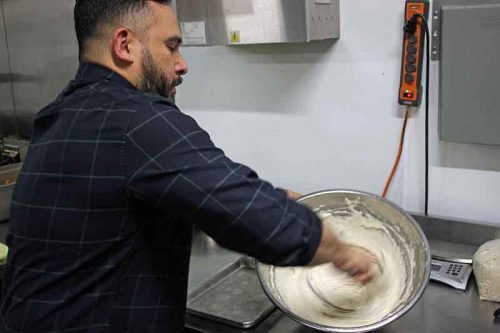
Mixing the masa for the tamales
THE TAMALES MIGHT WELL HAVE STAYED in the family—they’re a pretty homey and humble thing compared to most of the menu at La Josie. But two years into his restaurant, Barajas is ready to expose more of his background on the menu. “I wanted to speak about and let people know about our traditions for the holidays,” he says.
“That’s where the intent came, to say, I could make the tamales on the rooftop,” he says. By which he means, serve them as a special in this part of the restaurant. “We could make this feel like a Christmas posada,” a celebration emulating the inns of welcome that Mary and Joseph sought entrance to. “And that’s where the decorations come from. So the tamales are only going to be available up here, and they’re going to be served the traditional way, family style. And we’re going to bring in all the traditions that we do down there, like the candy that we have. The traditions from January 6th, the Día de los Santos Reyes,” Feast of the Three Kings.
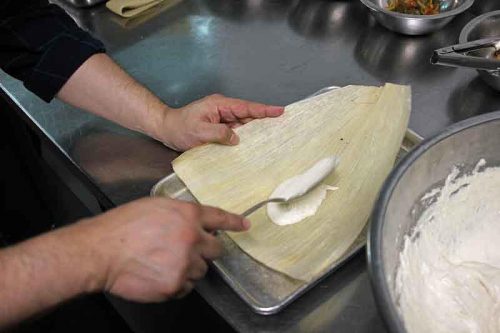
Spoon it into a corn husk…
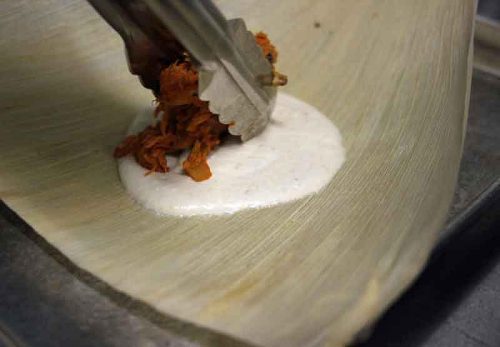
And add the filling.
“We’ll be serving a lot of things up here that are super-traditional, just to give people an idea of what Christmas is like for us in our tradition, in Jalisco,” he says. Besides the tamales, they’ll serve a Mexican ponche, which is exactly what it sounds like, a punch with tequila or mezcal and lots of fruit. “We also want to do it for our industry friends, all the people that are working around here. On Sundays and Mondays, we’re going to be serving the tamales and the ponche on the first floor as well.”
As far as the tamales go, La Josie will offer three traditional styles—”the main popular style that comes from my family is, we make a picadillo from a pork chop. We use veggies, we use tomatillos, we use green onions. And the sauce is going to be a chile puya, not too spicy, very flavorful. Those were the main ones she made.” Then there will be a roast chicken tamale with salsa verde, and a vegetarian choice, rajas con queso (peppers and cheese). “The stock is veggie, the lard is veggie, so everything is going to be vegetarian.”
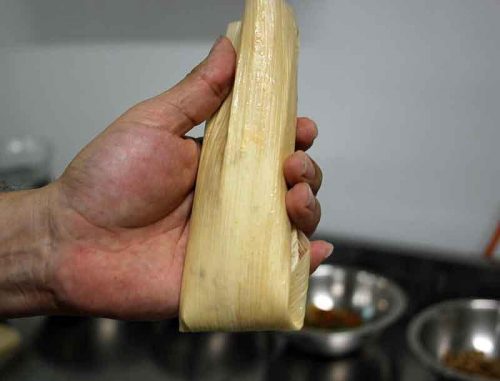
Making food for a restaurant requires more precision than at home. “We all know in our tradition, there was no such thing as measuring anything—everything was just eyeballing it, everything was by touch. You’ll know by the way the dough feels in your hand,” he says. “Spending the time to really R&D the recipe and get the measurements down correctly is everything. This is me trying to trace back everything they were doing—and me measuring, now.”
THAT, AT LEAST, WAS THE PLAN when I spoke with Barajas last week. The tamales were to be announced for the end of this week, but would be offered by the servers as a special before then. That must have gone well, because when I got the updated menu showing them—two of any one filling, for $8 to $10—they were ready to be offered throughout the restaurant, not just on the rooftop.
So starting Friday, have a taste of Christmas in Jalisco, as prepared by generations of women in Pepe Barajas’ family. And brought to Mexico City, then to 26th street in Chicago, and finally, to the corner of Randolph and Halsted in the busiest restaurant neighborhood in the city, in loving memory of Mexican cook Josefina Villegas, Mama Josie. Feliz Navidad.
Michael Gebert is el mayor of Fooditor.
Fooditor will return in the new year.
Latest
Join the Discussion
After you comment, click Post. If you're not already logged in you will be asked to log in or register with Disqus.




